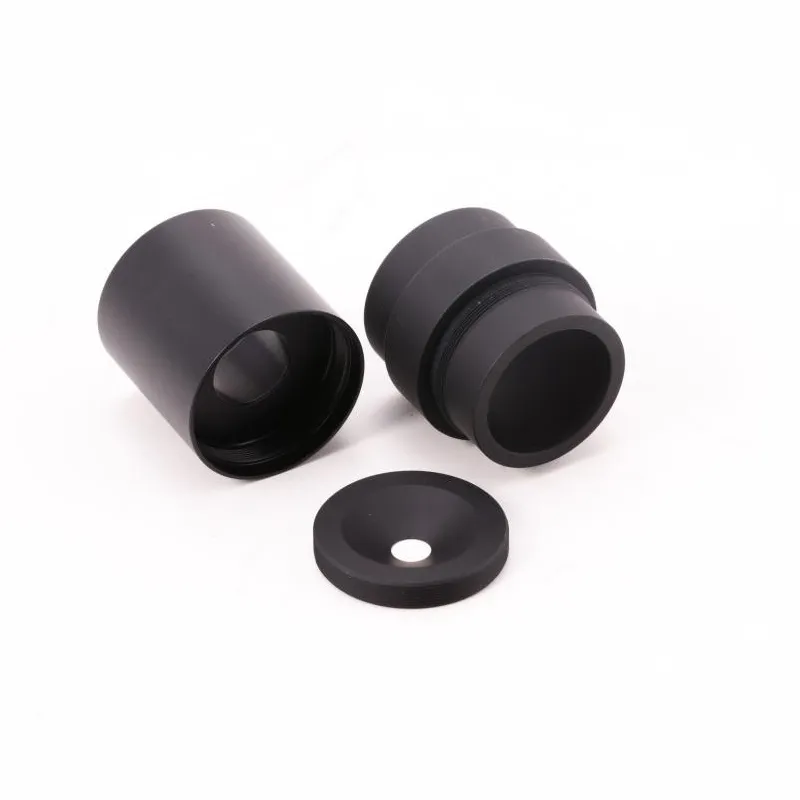Understanding Telecentric Lens Housing: Precision in Optical Systems
2024-11-29
Telecentric lenses are pivotal in applications requiring high-precision imaging, such as industrial inspection, metrology, and machine vision. However, the performance of these lenses depends significantly on their housing. The telecentric lens housing is not merely a protective structure; it plays a critical role in ensuring optical alignment, durability, and operational efficiency.
What is Telecentric Lens Housing?
Telecentric lens housing is the structural casing that holds and supports telecentric lenses. It is engineered to maintain the precise alignment of optical elements within the lens assembly, safeguarding against misalignment caused by physical or environmental factors. These housings are specifically designed to complement the unique optical properties of telecentric lenses, such as parallel light rays and minimal perspective distortion.
Key Features of Telecentric Lens Housing
1. Precision Engineering
Telecentric lens housings are manufactured with tight tolerances to ensure that the optical components remain in perfect alignment. This precision is critical in maintaining the telecentricity of the lens, which ensures consistent image magnification regardless of object distance.
2. Durability
Designed for industrial environments, telecentric lens housings are typically made from robust materials such as aluminum or stainless steel. These materials provide protection against vibration, heat, and mechanical stress, ensuring longevity and consistent performance.
3. Ease of Integration
Modern telecentric lens housings often come with mounting provisions, such as threaded mounts or dovetail grooves, to simplify integration into various systems. This flexibility makes them compatible with diverse setups, including automated inspection lines and optical measurement systems.
4. Thermal Stability
High-end telecentric lens housings are designed to withstand temperature variations without compromising optical alignment. This feature is essential for applications in environments with fluctuating temperatures, such as manufacturing floors.
5. Customizability
Many manufacturers offer customizable telecentric lens housings to meet specific application requirements. These customizations may include tailored dimensions, coatings, or additional features like protective glass or integrated lighting components.
Importance of Telecentric Lens Housing
1. Maintaining Optical Accuracy
A poorly designed housing can lead to misalignment of optical components, degrading the telecentricity of the lens. Precision-engineered housing ensures that the optical axis remains stable, delivering accurate measurements and imaging.
2. Enhancing System Reliability
Robust housing protects the lens from external factors such as dust, moisture, and mechanical shocks, extending the lifespan of the optical system and reducing maintenance requirements.
3. Facilitating Application-Specific Adaptations
Customizable housings allow telecentric lenses to be optimized for specific tasks, such as inspecting objects of irregular shapes or operating in challenging environments.
Applications of Telecentric Lens Housing
- Quality Control: Ensures precise dimensional measurement in automated inspection systems.
- Metrology: Maintains optical stability for high-accuracy measurements.
- Biomedical Imaging: Provides a stable structure for telecentric lenses in medical diagnostic equipment.
- Aerospace Engineering: Ensures consistent performance in environments with extreme conditions.
The telecentric lens housing is a critical component in any optical system utilizing telecentric lenses. Its role goes beyond mere protection, ensuring precise alignment, durability, and adaptability for various applications. Investing in high-quality telecentric lens housing is essential for achieving optimal performance and reliability in precision imaging systems.



